The 2025 Peter Porter Poetry Prize shortlist
Australian Book Review is delighted to announce the shortlist and longlist for the 2025 Peter Porter Poetry Prize, as selected by judges Sarah Holland-Batt, Paul Kane, and Peter Rose. The shortlisted poems appear in the January-February issue, which can be purchased here. The winner will be announced at a ceremony in Melbourne in February (details will be available here in early January). Now in its twenty-first year, the 2025 Porter Prize attracted 1,171 entries from twenty-nine countries. The Porter Prize is one of Australia’s most lucrative and respected poetry awards. It honours the life and work of the great Australian poet Peter Porter (1929–2010), a contributor to ABR for many years.
Status: Closed, shortlist announced. The winner will be announced at a ceremony on 18 February 2025 in Melbourne. Details can be found here.
First prize: AU$6,000
Four other shortlisted poets: AU$1,000
Dates: Opened 1 July and closed 7 October 2024
Judges: Sarah Holland-Batt, Paul Kane, Peter Rose
The judges said this of the five shortlisted poems:
‘The Orphan’ by Sarah Day
‘The Orphan’ describes a stone sculpture of almost heartbreaking poignancy in which an old couple help a female goat suckle an orphaned child. Cast unobtrusively in the poetic form of a sestina, this subtly ekphrastic poem offers an image of care, concern, and wholeness that ought to be an emblem of our times.‘Hook, Grandmother, Line, Marlin’ by Jennifer Harrison
‘Hook, Grandmother, Line, Marlin’ is an energetic, musically dextrous sonnet sequence that unites the personal and the ecological in a surprising meditation on fishing and loss, that ‘monstrous / edge between omnipotence and death’. The poet’s expert control of rhythm, image, and the poetic line generates a thrilling chase of language that upends expectations of the elegy.‘Notes from a Room’ by Audrey Molloy
‘Notes from a Room’ is an elegant, finely achieved sestina that expertly wields the form’s complexity to achieve subtle, condensed effects in a poem that explores the way music resonates and carries through walls and time. Beginning with a domestic and interior scene, the poem expands into a moment of tangential connection with the outside world through its ‘perfect hum’ of images and sound.‘Moths That Fly by Night’ by Claire Potter
‘Moths that Fly by Night’ draws the reader into a quiet scene in an empty room that is nonetheless filled with reflected light and personal reflections that deepen into a meditation on time and memory as, outside, moths flutter at the window trying to reach the interior light. With rich and precise detail, the poem unfolds a drama that is naturalistic but also uncanny.‘The Vastness of What Poetry Can Do’ by Meredith Stricker
That this is the most expansive poem on the shortlist seems inevitable, given its titular subject: ‘The Vastness of What Poetry Can Do’. The five eclectic epigraphs (beginning with Wallace Stevens, who might have conceived the title), and the references throughout, hint at the poet’s impressive range of influences, but this spacious and elegant poem – ‘stubborn, forlorn, resplendent’ – is entirely individual and original.
The judges said this of the overall field:
This year’s Peter Porter Poetry Prize attracted just under twelve hundred poems from twenty-nine different countries. This attests to the global reach and influence of the prize, now in its twenty-first year. As always, the field was multifarious, reflecting the variety and inventiveness of contemporary poetry, from the lyric to prose poems. The subjects, the impulses, the intentions were similarly various. There were poems about health, family, mortality, nature, travel, and overcoming. The immense challenges facing humanity – from the climate crisis and the rise of despotism to conflicts in Ukraine and the Middle East – sparked poems. We were impressed by the technical ingenuity of many of the poems from which we drew the longlist. Peter Porter himself would have relished the abundance of sonnets, villanelles, pantoums, sestinas, and ekphrastic poems. We thank all of this year’s entrants, and we commend the shortlisted poems to readers.
The longlist for the 2025 Porter Prize is as follows (in alphabetical order by poet):
Sarah Day (Tas) | The Orphan
Liam Ferney (QLD) | Eroica
Jennifer Harrison (Vic) | Hook, Grandmother, Line, Marlin
Paul Hetherington (ACT) | River
Jennifer Kornberger (WA) | The Jeweller’s Loupe
Julie Manning (QLD) | The Realms of the Unreal
Audrey Molloy (NSW) | Notes from a Room
Claire Potter (NSW) | Moths That Fly By Night
Meredith Stricker (USA) | The Vastness of What Poetry Can Do
Dolores Walshe (Ireland) | In the Garden
More information about the shortlisted poets can be found below.
The 2025 Porter Prize shortlist
‘The Orphan’ by Sarah Day
Sarah Day’s books have won awards, including the Queensland Premier’s and ACT poetry prizes. Her books have also been shortlisted for the NSW, Tasmanian Premier’s, and Prime Minister’s Literary Awards. In 2017 she received the Alan Marshall short story prize. She has collaborated with musicians in the United Kingdom and Australia, judged national poetry, fiction, and nature-writing competitions, and taught creative writing to Year Twelve students for twenty years. Her ninth collection, Slack Tide (Pitt Street Poetry), was published in 2022.
‘Hook, Grandmother, Line, Marlin’ by Jennifer Harrison
Jennifer Harrison has written eight books of poetry, most recently Anywhy (Black Pepper, 2018). Two new collections, Sideshow History and Finals, are forthcoming in 2025. She is Chair of the World Psychiatry Association’s Section for Art and Psychiatry and won the 2023 Troubadour International Poetry Prize.
‘Notes from a Room’ by Audrey Molloy
Audrey Molloy grew up in Ireland and has lived in Sydney since 1998. Her début collection, The Important Things (The Gallery Press, 2021), won the Anne Elder Award and was shortlisted for the Seamus Heaney First Collection Poetry Prize. The Blue Cocktail was published by both The Gallery Press and Pitt Street Poetry in 2023. She has an MA in Creative Writing from Manchester Metropolitan University. She was awarded a Varuna Residential Fellowship in 2020 and is the grateful recipient of a Literature Bursary Award from The Arts Council of Ireland.
‘Moths That Fly by Night’ by Claire Potter
Claire Potter is author of four poetry collections, Acanthus (Giramondo 2022), Swallow (Five Islands 2010), N’ombre (Vagabond 2007), and In Front of a Comma (Poets Union 2006), as well as numerous essays and translations. Her writing has been published in Poetry Chicago, London Review of Books, New York Review of Books, Best Australian Poems, New Statesman, Meanjin, Australian Book Review, and Poetry Ireland Review among others, translated into Chinese and French, and shortlisted for the NSW Premier’s Literary Award, the ACT Premier’s Literary Award, the Victorian Premier’s Literary Award, the Michael Wesley Wright Poetry Award, and the Helen Anne Bell Poetry Award. She studied English at the Universities of Western Australia and NSW, and holds a Masters in Psychoanalysis from Université Paris VII and Psychoanalytic Infant Studies from the Tavistock Institute. She lives between Sydney and London, where she teaches at the Architectural Association.
‘The Vastness of What Poetry Can Do’ by Meredith Stricker
Working in cross-genre art, Meredith Stricker is the author of six poetry collections and a recipient of the National Poetry Series Award. She co-directs Visual Poetry Studio, a collaborative that focuses on architecture in Big Sur on California’s central coast, along with projects to bring together artists, writers, musicians and experimental forms. A new collection, Sentience, is forthcoming from Omnidawn Press. Other books include Rewild, awarded the Dorset Prize from Tupelo Press; Our Animal, winner of the Omnidawn Open Book Competition; Alphabet Theater, mixed-media performance poetry from Wesleyan University Press; Tenderness Shore, L.S.U. Press for the National Poetry Series Award; mistake, from Caketrain Press; and anemochore, winner of the Gloria Anzaldúa Prize from Newfound Press and finalist for the Poetry Society of America Four Quartets Award. Her poetry and art have appeared in performance and gallery spaces and in numerous publications including: Conjunctions, Boston Review, Tupelo Quarterly, Best American Experimental Writing.
More information
Click here for more information about past winners and to read their poems.
Please read our Terms and Conditions and Frequently Asked Questions.
The Peter Porter Poetry Prize is funded by the ABR Patrons, including support in memory of Kate Boyce.



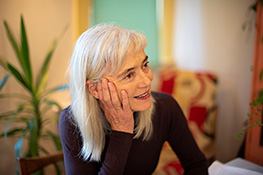
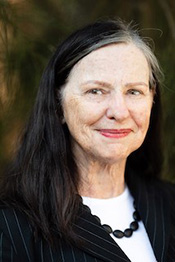

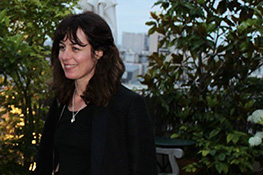
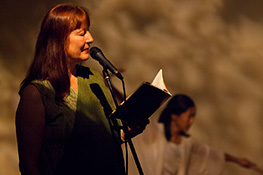
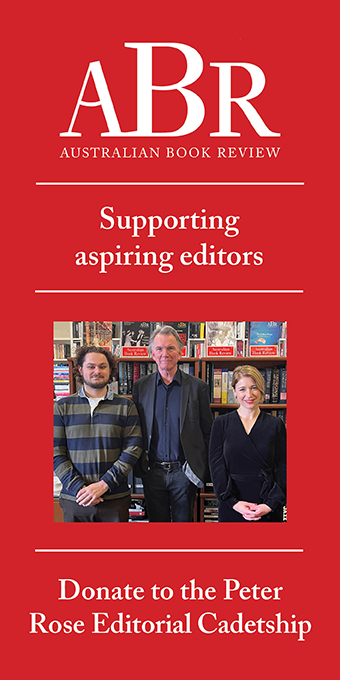

If you are an ABR subscriber, you will need to sign in to post a comment.
If you have forgotten your sign in details, or if you receive an error message when trying to submit your comment, please email your comment (and the name of the article to which it relates) to ABR Comments. We will review your comment and, subject to approval, we will post it under your name.
Please note that all comments must be approved by ABR and comply with our Terms & Conditions.